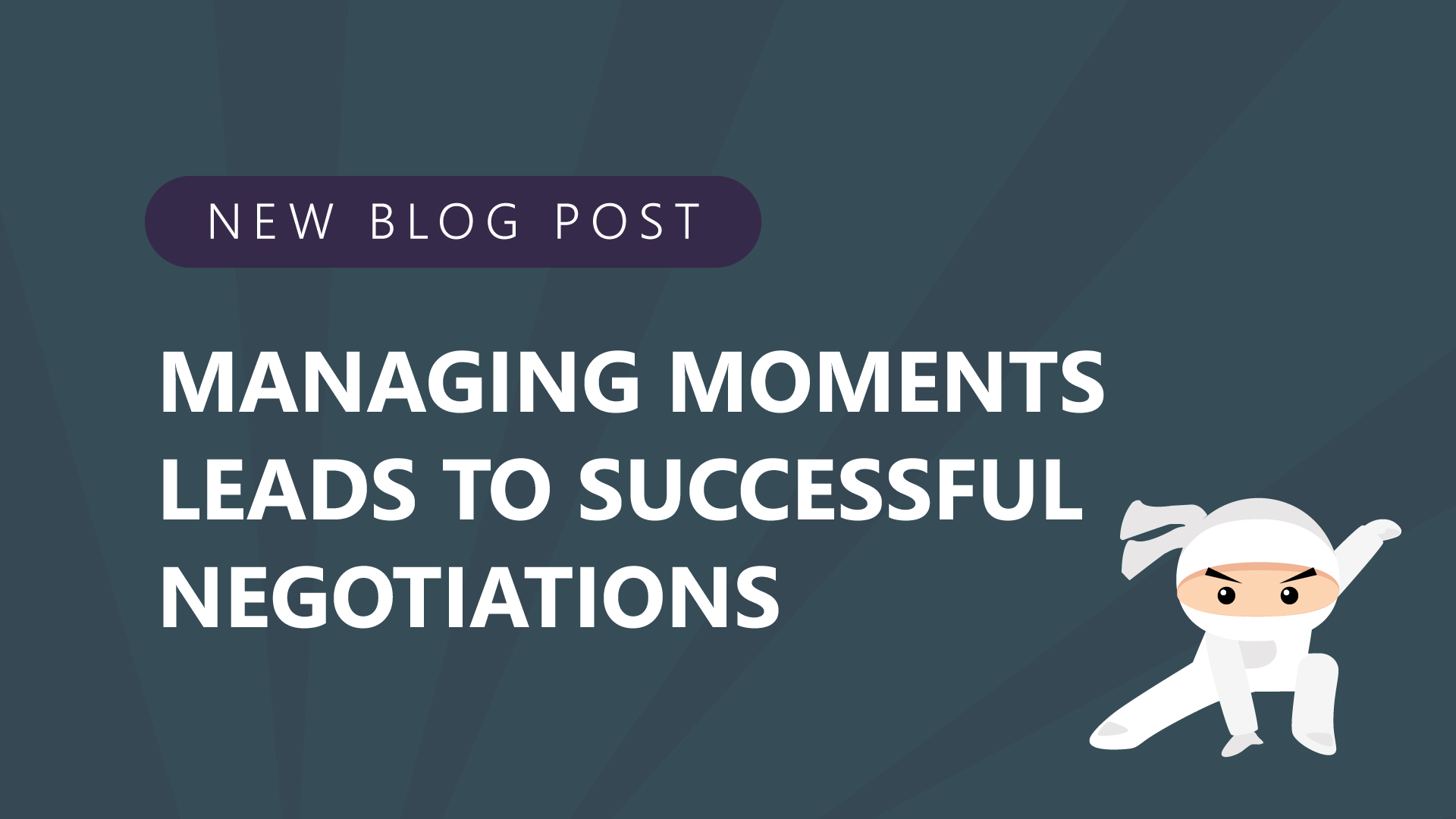Moshe Cohen has been teaching negotiation and mediation for 27 years. After 11 years working as an engineer, he realized he was more interested in the people side of things.
So he went to business school, took a negotiation class, and fell in love. He became a mediator and quickly transitioned into teaching mediation, negotiation, and leadership classes.
Throughout the last 27 years, Moshe studied human emotion and how it plays into negotiation. He learned that managing moments is critical to a successful negotiation. What does that mean?
Why managing moments is critical
Moshe believes that life happens in moments. If you want to lose weight, you can be great all day but blow your diet in one weak moment plowing through a brownie.
Negotiations happen in moments, too. You can prepare, engage the other party, uncover their interests, and then something happens. You might get overwhelmed and make a concession you shouldn’t make. You might reveal information you didn’t want to reveal. Managing those moments is critical.
Managing your emotional responses in those moments is key. Anything anyone says and does will impact you on the emotional level first. What if you’ve gone through a lengthy negotiation and walk into the meeting you think you’re closing the sale?
Instead, their procurement person is there, and they make a huge demand. You’re likely frustrated, overwhelmed, and angry…and you’re feeling it intensely and instantaneously. It’s when you’re emotionally overwhelmed that big mistakes happen.
Allow your cognitive brain to catch up
It takes time for emotions to subside and your cognitive brain to play catch up. Until then, you’re likely going to regret anything you do or say. Many things in a negotiation will make you reactive. So how do you manage your emotional responses?
Identify your triggers. What sends you into emotional overload? Some people are fine until they get close to a deadline. Other people are triggered by people in authority. The more you’re aware of your triggers, the less triggering they are. How do you identify your triggers?
Think back to past negotiations where you did something you regretted. What happened right before that? Chances are that’s one of your triggers.
How well do you understand your triggers? You can’t predict everything that will happen. Things will happen, so you need to catch yourself before you do anything that’s damaging. Your body will give you clues—watch for them. Your heart rate goes up, your breathing changes, your muscles tense. It signals that you need to slow things down.
Ask for a break, ask questions, and do whatever you need to give your cognitive brain a chance to connect with your emotional brain.
Physical health is often overlooked
I tell people that they shouldn’t go into a negotiation hungry, with a headache, or feeling physically off. Those things directly impact how you have conversations. Think about what a negotiation requires from you.
Substantial negotiating requires concentration, attention, patience, and a lot of energy. Unless you set yourself up to succeed, you won’t be able to sustain yourself. How do you take care of yourself? How do you set up your environment for success?
Can you negotiate in a noisy environment? Do you need tea or coffee? What time of day is best? Moshe is a morning person. He can’t negotiate well in the afternoon. So he schedules his negotiations for when he’s the sharpest.
Good emotions can also derail you. Moshe had a student that was so excited about a job offer that she accepted it immediately, completely forgetting to negotiate. You need to make reasoned and strategic choices.
You don’t have to check your emotions at the door, but you do need to be in control of them. Learn more about the managing moments in episode #365 of Negotiations Ninja!

